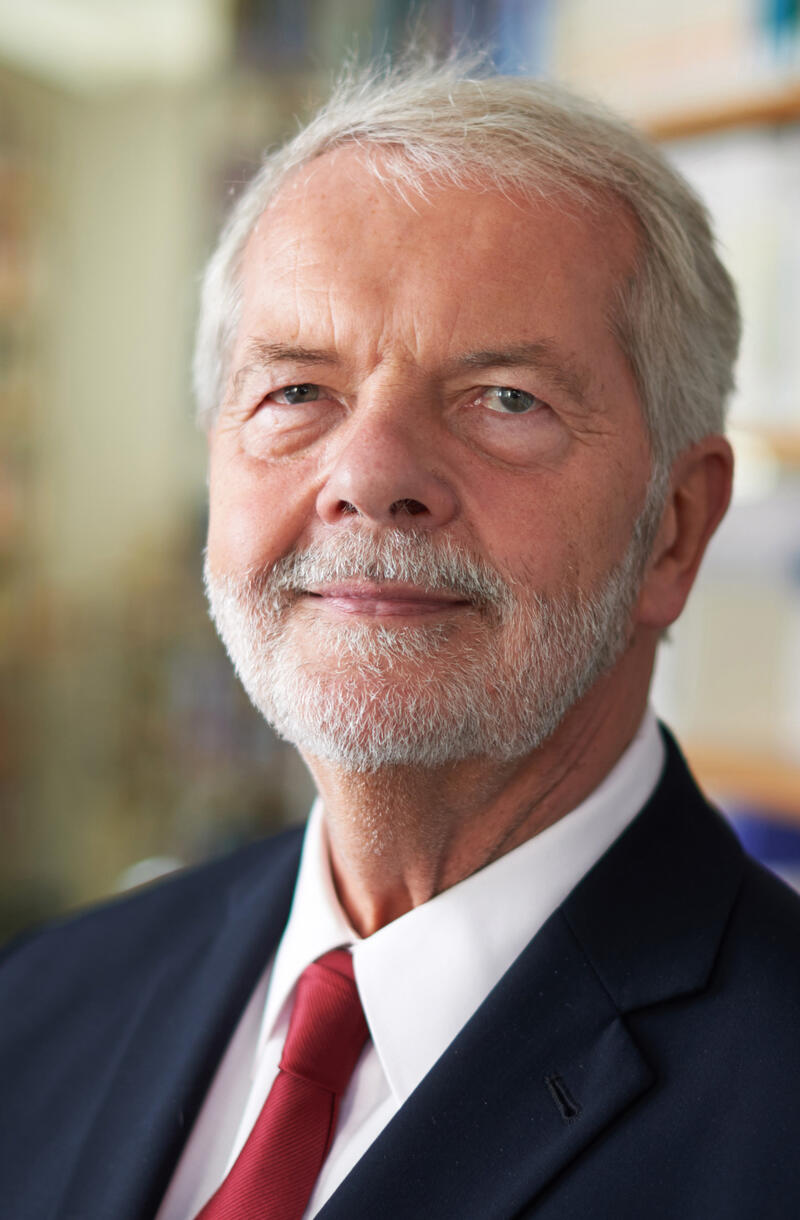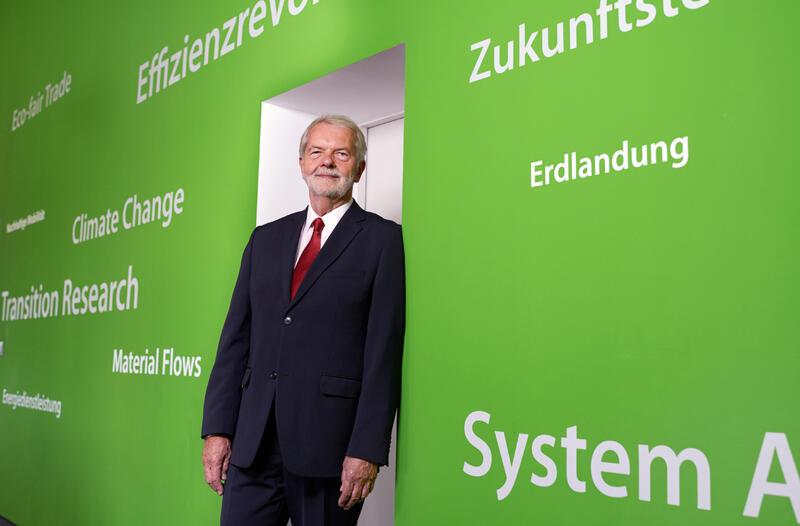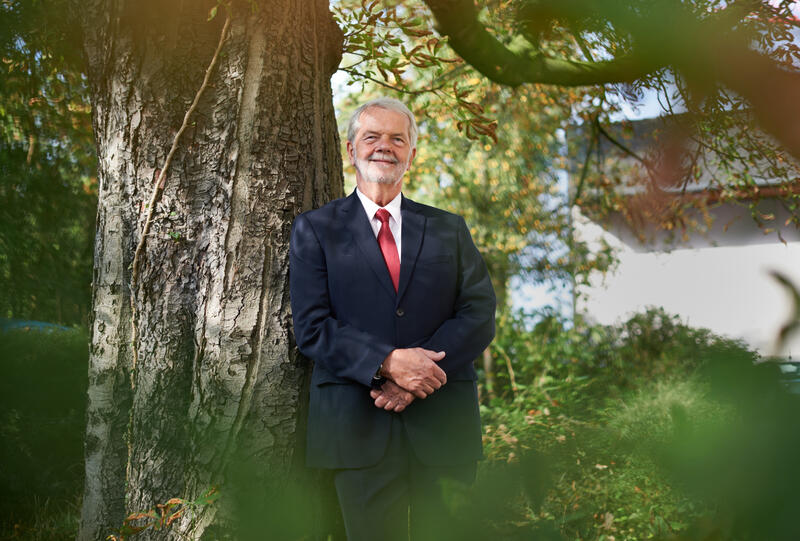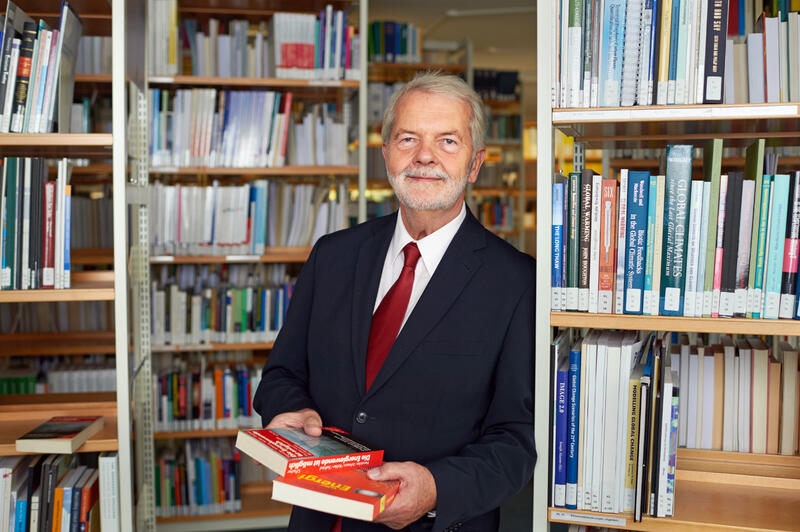“German Pope of Efficiency” as a “persistent and untiring trailblazer for the transition to renewables in Germany”
“He was passionate about the transition to renewables and energy efficiency even in the 80s, when these ideas were still new and revolutionary and in their infancy. With extraordinary commitment and scientific competence, he has worked successfully to this day on transforming the energy system according to ecological principles, on saving energy, and on making it economically feasible to have an energy supply derived entirely from renewable sources. He is one of the most prominent and persistent pioneers of the energy transition.” This is how Dr. Heinrich Bottermann, General Secretary of the Deutsche Bundesstiftung Umwelt (DBU), today announced the presentation of the 2014 German Environmental Award of the DBU to Professor Peter Hennicke (72). The economist and professor for economic policy and energy economy was extremely active at all levels, Bottermann said: in an interdisciplinary capacity in the field of science, as an economic and political consultant, and as a source of information for the public. German President Joachim Gauck will hand the award to Hennicke in Kassel on 26 October. The prize money: 245,000 euros.
Recognised scientist and expert on sustainable energy supplies
“Putting scientific visions into practice” - that is a central principle espoused by the prizewinner, Bottermann said: “Hennicke is a recognised scientist and expert for sustainable energy supplies who has been extraordinarily active for decades. He has made a decisive contribution to creating the scientific basis for the transition to renewables in Germany, and to furthering the political implementation of this transition.” One outstanding facet of his activities was the implementation of his economic insights at the social and political level, a goal that he had pursued with much commitment, endurance and persistence, according to Bottermann. For over 35 years, Hennicke had been developing innovative concepts for saving energy and promoting their implementation in practice, something that had gained him the title of “German Pope of Energy Efficiency,” the DBU General Secretary said.
Anti-nuclear movement and reactor accident as trigger
Bottermann said an important trigger for Hennicke's commitment had been the book “Energie-Wende: Wachstum und Wohlstand ohne Erdöl und Uran” (Energy Transition: Growth and Prosperity without Petroleum and Uranium” (1980) by Florentin Krause et al. But according to Bottermann, Hennicke had also been motivated by the anti-nuclear movement of the 70s and 80s and by his work in the Hessian Environment Ministry under the then first Green environment minister Joschka Fischer, where, for the first time, a scenario was developed for abandoning atomic energy in Germany after the reactor disaster in Chernobyl in 1986.
"Applied sustainability research" revamped
“As a pioneer and influential personality, Hennicke has had a function as a role model in the academic sphere and for the next academic generation that is also reflected in his impressive list of more than 230 publications”, Bottermann said. In particular, Bottermann emphasised the revamp of the research program carried out under Hennicke's leadership at the Wuppertal Institute for Climate, Environment and Energy, whose methods and content could be summarised under the phrase “applied sustainability research” and which engages with the research and implementation of sustainability strategies in social and economic practice.
Influence on political strategies and promotion of energy efficiency
Bottermann went on to describe how, because of his outstanding activities in many national and international bodies, Hennicke had influenced important political measures designed to promote the spread of energy and resource efficiency. Recently, for example, a “proposal for a federal agency for energy efficiency and energy saving funds” for the German government was drawn up at his initiative at the Wuppertal Institute for Climate, Environment and Energy, according to Bottermann.

© Bernd Thissen/DBU

© Bernd Thissen/DBU
Pioneering recipe for success for the energy transition
Bottermann highlighted, as particularly innovative, Hennicke's pioneering conviction, which he held from early on, that changes in values and behaviour, social acceptance, technological developments, legal practicability and the right government framework all had to come together if the energy transition was to succeed. As far back as the eighties, Bottermann said, Hennicke, together with co-authors Stefan Kohler and Dieter Seifried, had developed a concept for the restructuring and decentralisation of the “grid-bound” energy economy, i.e. the energy economy reliant on electricity, gas and local and long-distance heating. In his highly respected book “Die Energiewende ist möglich” (“The Energiewende Is Possible”), published in 1985, he described local authorities and municipal utilities as the most important players in an energy transition to renewables.
Scientific expertise applied to concepts of energy economy
Hennicke, who received his doctorate in 1977 and his post-doctoral qualification in 1982 with economic policy as main emphasis, was appointed as professor at Osnabrück University. From 1988 to 1992, he was professor at the Darmstadt Institute of Applied Sciences. Hennicke was able to apply his scientific expertise to the development of concepts of energy economy while working in the planning department of a regional energy utility as well as as a consultant for key issues of energy policy in the Hessian environment ministry from 1986 to 1988. From 1985 to 1988 he was a member of the board of the Insitute for Applied Ecology (Öko-Institut, Freiburg).
Political adviser at national and international level
Between 1987 and 2002, Hennicke was appointed three times as a member of the German government's investigating committees on the protection of the earth's atmosphere and on the supply of sustainable energy under the conditions of globalisation and liberalisation. In October 1992, he took over the energy department at the Wuppertal Institute, and led the renowned institute from 2000 until retiring in 2008. At the same time, from 1992 to 2008, he was professor for economic and energy policy at the Bergische Universität in Wuppertal. Since then, he has been active as a consultant in many capacities. Since 2012, as a representative of the European Parliament, he has been a member of the Management Board of the European Environmental Agency (EEA/Copenhagen). He is currently working on an international project at the Wuppertal Institute that is establishing a comprehensive knowledge platform (bigEE.net) regarding energy efficiency in buildings. In March 2014, he was accepted as a member of the Club of Rome. From October 2014, he has been visiting professor at Lund University in Sweden.

© Bernd Thissen/DBU

© Bernd Thissen/DBU